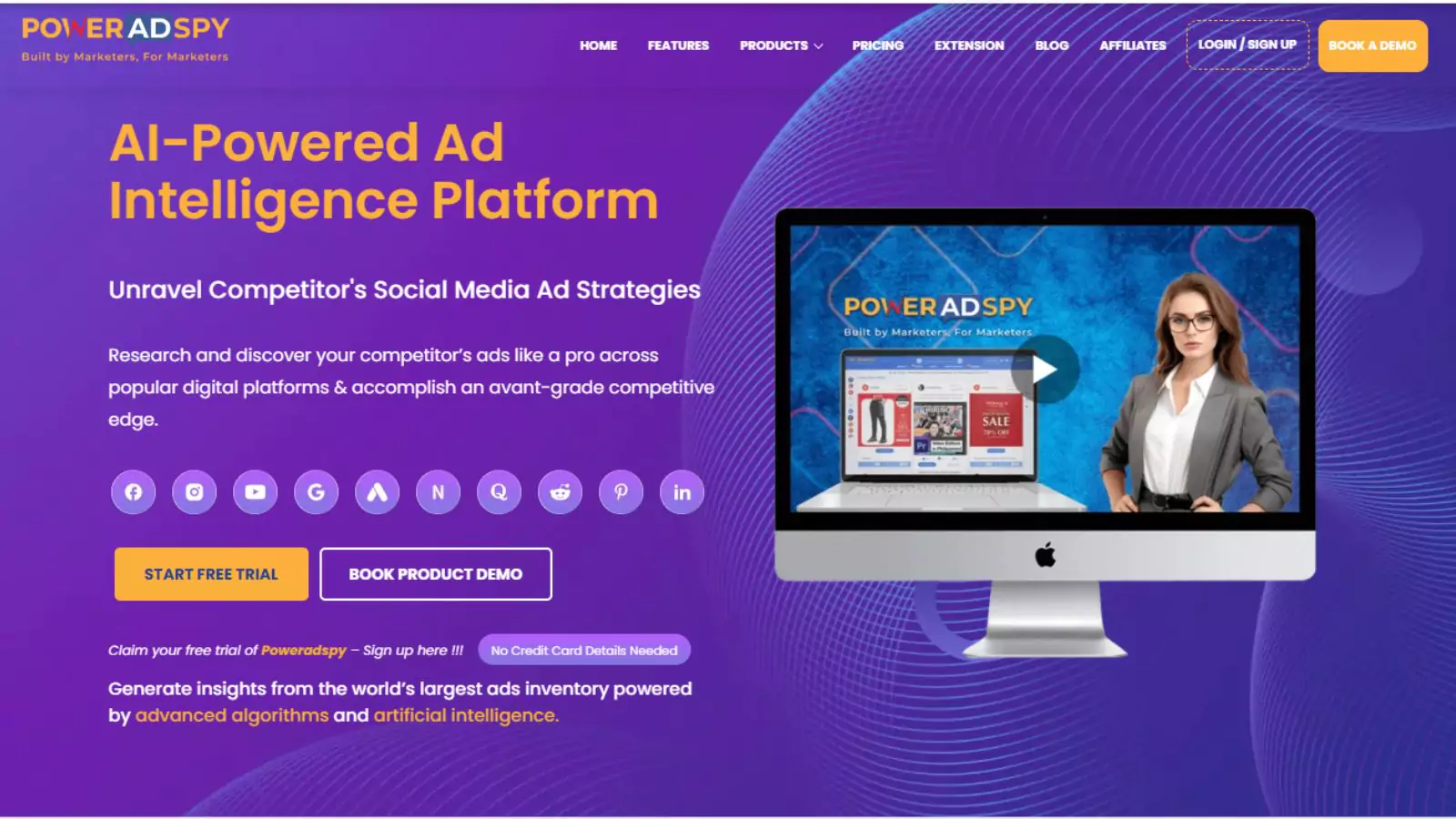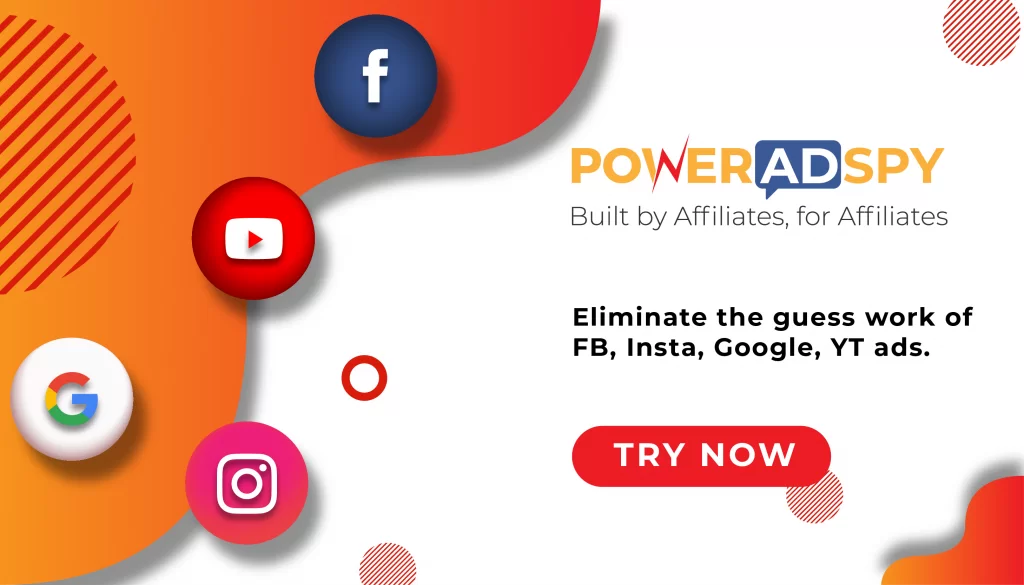How To Optimize Google Lead Ads For Maximum Impact
Ready to supercharge your marketing game? In the ever-evolving landscape of online advertising, Google Lead Ads stand out as a powerful tool for businesses aiming to boost their lead generation efforts. Whether you’re a seasoned marketer or just dipping your toes into the digital waters, optimizing Lead Ads can make a significant impact on your campaign’s success.
In this blog, we’ll take a deep dive into the world of Google Lead Ads, unraveling the secrets behind effective optimization strategies. No jargon, no complicated theories – just straightforward insights and actionable tips to help you harness the full potential of Google ads assets and elevate your marketing game to new heights.
Let’s get started on the journey to maximum impact!
Hit ‘Play’ Button & Tune Into The Blog!
What Are Google Lead Ads?
Google Lead Ads is a streamlined advertising format designed to simplify capturing leads. These ads eliminate the need for a separate landing page by presenting a lead form directly within the ad. Users can easily submit their information, such as email addresses or phone numbers, without leaving the platform.
This user-friendly approach enhances conversion rates and accelerates lead generation. Advertisers can customize forms and target specific audiences, making it an efficient tool for businesses seeking to expand their customer base. Google Lead Ads provide a seamless experience, fostering quick and direct connections between businesses and potential customers.
Types of Google Lead Generation Ads
Google provides diverse lead-generation ad formats for businesses aiming to capture potential customer information and generate leads.
Search Ads, visible on Google’s search results page, activate based on targeted keywords. The ad incorporates a form, allowing users to submit information without leaving the search results page.
Discovery Ads, featured in Google’s discovery feed, Gmail, and YouTube, prioritize conversion. It is designed to reach audiences with a higher intent to take action than display ads.
Display Ads, versatile in reaching various audiences, appear on a broad spectrum of
websites and applications. Often used for awareness, the display ad format offers extensive reach in Google lead ads generation efforts.
How To Use Google Ads For Lead Generation
Utilizing Google Ads for lead generation involves strategic planning and execution. Here’s a step-by-step guide:-
1. Define Clear Objectives
Clearly outline your goals for lead generation through Google Ads. Determine the specific type and quantity of leads you want to generate. This clarity will guide your campaign strategy and overall SaaS marketing strategy.
2. Know Your Audience
Identify and understand your target audience. Develop detailed buyer personas to grasp their preferences, behaviors, and needs. Tailor your ad content to resonate with this specific audience for more effective lead generation.
3. Utilize Third-Party Tools
Consider incorporating Google ad spy tool like PowerAdSpy into your strategy. These tools provide insights into competitors’ ad strategies, helping you stay informed about industry trends and allowing you to adapt your approach accordingly.
Analyzing competitor ads can inspire creative ideas and reveal effective techniques, contributing to the overall optimization of your Google lead ads generation. Keep in mind that while third-party tools can offer valuable insights, it’s essential to integrate them judiciously within your broader campaign strategy.
PowerAdSpy: Ad Intelligence Tool
This tool is designed to provide advertisers and marketers with insights into their competitors’ advertising strategies across various platforms. These tools typically offer features such as:
- Competitor Analysis: PowerAdSpy allows users to search and analyze the advertisements of competitors. It includes insights into the ad copy, visuals, and overall strategy.
- Ad Performance Metrics: Users can often access data on specific ads’ performance. It may include information on engagement rates, click-through rates (CTR), and other relevant metrics.
- Keyword and Targeting Insights: These tools provide details on the keywords and targeting criteria used by competitors in their advertising campaigns.
- Creatives Inspiration: It serves as a source of inspiration for your ad creatives. By observing successful strategies in your industry, you can adapt and enhance your campaigns.
When using ad spy tools, it’s important to approach the data with a critical mindset. Not all strategies that work for one business will necessarily work for another, and it’s crucial to tailor your approach based on your unique goals, audience, and value proposition.
4. Optimize Ad Copy
Craft engaging and concise ad copy. Highlight the unique benefits of your product or service and include a compelling call to action. Encourage users to take the desired action, whether it’s filling out a form or making a purchase.
5. Leverage Ad Extensions:
Enhance your ads with extensions like site links, callouts, and structured snippets. These extensions provide additional information and encourage user engagement by offering more context about your offerings.
6. Optimize Landing Pages
Design dedicated landing pages that align with your ad content. Ensure a seamless user experience by delivering on the promises made in your ads. Include clear and user-friendly that captures Google lead forms to facilitate the conversion process.
7. Monitor, Test, and Adjust:
Continuously monitor the performance of your Google Ads campaign. Conduct A/B testing on ad variations, headlines, and calls to action. Utilize analytics tools to gather insights into user behavior. Based on the data, make informed adjustments to optimize your campaign for better results over time. Regular monitoring and refinement are crucial for ongoing success in Google lead ads generation.
Also Read,
An Ultimate Guide to Google Ads Assets: 2023
Spy Google Ads In Your Niche: A Cheat Sheet To Google Ads
Everything You Need To Know About Google Leads
Google Lead Generation Ads Examples
Here are a few examples of Google lead-generation ads:
1. Driftrock’s Lead Generation Ad:
Headline: “Lead Generation Software”
Description: The ad encourages users to “Book a Demo” for Driftrock’s services.
Form: Upon clicking “Book now,” users are directed to a form where they can provide their name, email, and phone number. After submission, a thank-you page appears with a link to visit the website.
2. The Haute Motors Lead Generation Ad:
Headline: Triggered by the keyword “buy a car.”
Description: Encourages users to “Apply now” for lower interest rates.
Form: Clicking the “Apply now” extension opens a lead form with a clear description of how the provided information will be used. The thank-you page assures users of a response within the next two hours, providing a link to the website.
3. Hurst Dental Practice Lead Generation Ad:
Headline: Showcases dental services with the CTA “Learn more.”
Form: Users can either call the company or click “Learn more” to access a form where they can fill in their details. The subsequent thank-you page promises a prompt follow-up and includes a link to the practice’s website.
These examples illustrate diverse approaches to lead generation ads, emphasizing clear calls-to-action and user-friendly forms to capture valuable information and initiate further engagement.
Wrapping Up
Optimizing your Google Lead Ads is crucial for getting the most out of your advertising
efforts. By following the steps and strategies discussed in this blog, such as crafting compelling ad copy, choosing the right audience targeting, and continually analyzing and adjusting your campaigns, you can enhance the impact of your lead generation efforts.
To take your optimization to the next level, consider using tools like PowerAdSpy. This powerful tool allows spy on Google ads of your competitors, uncovering valuable insights and inspiration for your campaigns.
Remember to stay consistent in monitoring your leads, tweaking your ad settings, and staying updated on the latest features and trends in Google Ads. By being proactive and responsive, you’ll maximize the impact of your Google Lead Ads and drive more valuable leads for your business. Happy optimizing!







